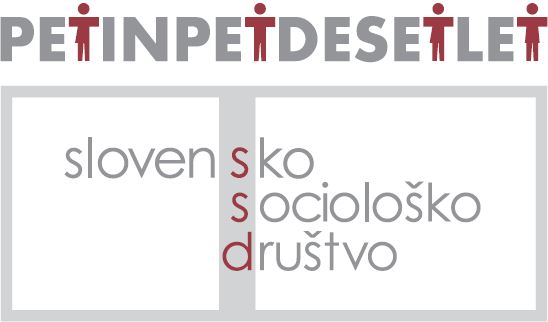Social Science Forum 88 (XXXIV)
Metropolis? No, thanks! Ljubljana in Slovenian Feature Films in the Period of Socialist Modernisation (1945–1969
Peter Stanković
ABSTRACT: In the article, representations of Ljubljana in Slovenian feature films made during the period of accelerated modernisation from the end of WWII to 1969 are analysed. Semiological analysis shows that Ljubljana is in these films constructed in a rather diverse yet not entirely arbitrary manner, as in all cases various signifiers of modernisation are presented in negative contexts. In films, where signs of modernisation are largely absent, Ljubljana appears as pleasant and beautiful city, whereas in ilms, where signs of modernisation are present, Ljubljana is presented as neurotic and alienated city. These representations could be explained by the relatively low status of urbanity in Slovenian culture.
KEY WORDS: film, images, Ljubljana, modernisation, representation, urbanity
>> Download
Cultural and Social Engagement in the Context of Digital Everyday Life: Study of Youth in Ljubljana
Tanja Oblak Črnič
ABSTRACT: The articles explores the relationships between position of culture in everyday life of young people, their media consumption and civic engagement, by focusing on the role of digital media. Among others, the study shows the limitations of universal understanding of the youth. Based on the results of a quantitative online survey among 793 young people in Ljubljana, this study identifies distinctive types of youth cultural involvement: the biggest group is apolitical and from the cultural events excluded youth, while the socially and politically most engaged youth seem to be the so called »cultural creators«.
KEY WORDS: kulturna participacija, vključenost v kulturo, družbena in politična angažiranost, mladi, digitalni mediji, vsakdanje življenje
>> Download
Young adults who leave home in the Municipality of Ljubljana
Metka Kuhar, Alenka Švab
ABSTRACT: The article presents research results concerning young adults who leave home in the Municipality of Ljubljana. By considering already known patterns of young adults’ prolonged co-residence with their parents, the article aims to find out whether data on young adults from the Ljubljana municipality (2017) confirm what is already known or reveal changes or specific aspects. The results show: 1. a consistent picture of prolonged living in the family of origin (with gender, intimate partnership, employment as the main predictors); 2. paternal financial support even for young people who have left the parental home; and 3. a diverse and dynamic period of various living arrangements ranging between fully living in the family of origin and having one’s own full residential independence. The results point to a new characteristic of a greater share of young people living in privately rented apartments, which may be specific to the Ljubljana municipality.
KEY WORDS: young adults, family of origin, parents, leaving home
>> Download
Minority Status and Bordering Position as a Platform for Attitudes to Multiculturality (A Case Study of the Italian and Hungarian Minorities in Slovenia)
Mateja Sedmak
ABSTRACT: The article analyses how members of the Italian and Hungarian minorities in Slovenia view multiculturalism and its manifestations such as ethnic heterogamy, transcultural identities, ethnic in/tolerance and ethnic prejudices. The minority status (and bordering position) are in this regard perceived as a platform for attitudes to multiculturalism and a key explanatory factor. The article highlights the presence of the transcultural nature of the minorities and their positive attitudes to multiculturalism, yet also emphasises that the related ethnic sentiment is highly variable, relational and situational. Although one would expect the minorities to more strongly defend the positive effects of multiculturalism, this is not the case. The reason is the confrontation of two ideologies, nationalism and transculturalism, the former interfering in the otherwise transculturally oriented minorities.
KEY WORDS: Italian minority, Hungarian minority, multiculturality, transculturality, borderland
>> Download
The deconstruction of Freud's theory of melancholy
Peter Stanković
ABSTRACT: In the article, the author presents an interpretation of melancholy and its discourse through the perspective of Jacques Derrida’s deconstruction and “violence of writing”. In part one of the article, the ambivalent and contradictory conceptions of melancholy in the West are outlined in order to show the working of the logic of Différance that makes any unified and universal definition impossible. Sigmund Freud first introduced a universal theory of melancholy in his essay “Mourning and Melancholia” (1917), while part two of the article analyses the inherent enigmas and contradictions in Freud’s psychoanalytical distinction between mourning and melancholy in the specific socio-historical context. The binary oppositions in support of Freud’s dichotomy are also exposed. In the conclusion, the author shows how Freud’s paradoxes are deconstructed in contemporary theories in the humanities and social sciences that address various social and political discourses.
KEY WORDS: deconstruction, violence of writing, Mourning and Melancholia, loss, psychoanalysis
